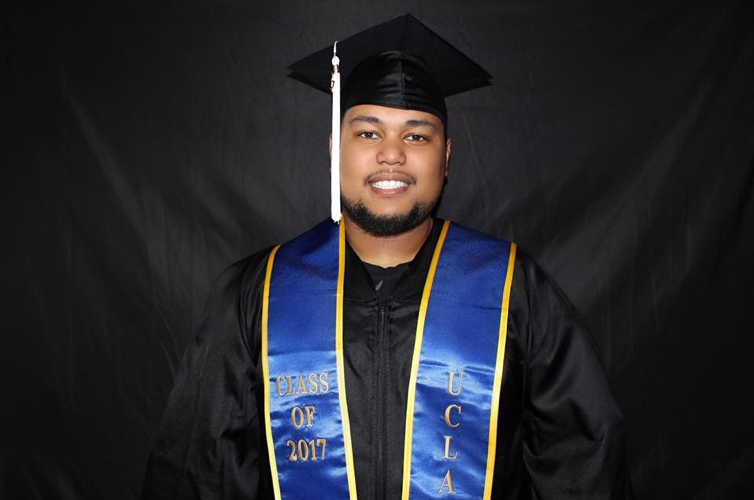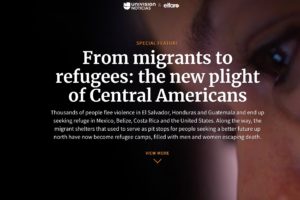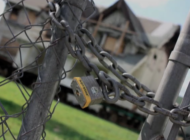First-generation students are expected to fail but Jaqueline and Henry beat the odds and graduated from college despite the many obstacles they have faced.
By BRIANNA RENDON
EL NUEVO SOL
Graduating high school and being accepted into your dream college is an exciting time in a person’s life. College is known for being fun and memorable experience because of clubs, sororities and fraternities. Unfortunately for many first-generation students, college was a difficult time because they live two worlds. First-gen students face many difficult challenges throughout their college years such as the transition from adolescent to adulthood, feeling alienated, financial struggles, and family responsibility. Out of the 7.3 million students attending four-year universities about 20 percent are first-generation students and about 50 percent of the those are low-income.
Experts Alina V. Katrevich and Mara S. Aruguete explain in the Journal of STEM Education that first-gen students are not as academically confident and have difficulty adapting to the university environment. 22-year-old Henry Duong grew up in La Puente, California but his both his parents came to the U.S. from Vietnam. Henry says the transition from high school to college was not easy as he thought it would be.
“It was very difficult because I was the first in my family to go to college. I had no guidance from my parents and I had to learn and figure everything out by myself. My parents barely knew English so it’s hard for them to help me with paperwork or anything college related. College was the hardest thing I’ve ever encountered in my life. My first year at UCLA was like a reality check for me. I was failing classes and received my first D letter grade ever when I did well in high school. The transition was extremely difficult, I felt lost and felt like I did not belong.”
The transition to college was also hard for 24-year old Jaqueline Lopez and her family. Jackie was raised in Los Angeles, California and her parents came from Mexico. Her family was extremely reliable on her so there was that culture clash between school and home.

Jaqueline Lopez, 24, CSUDH Alumni, alongside her youngest brother. Photo courtesy of Jaqueline Lopez.
“Being a first-gen student is hard because you and your family don’t know what to expect. My parents thought that college was going to be the same as high school and that was a rude awakening for the both of us. I would always have time for my parents if they needed me to do something when I was in high school especially because it was so close to home. In college, it is more work and I would constantly have to stop doing what I was doing to help them. It hurt me to disappoint my mom by telling her I could not do some things she asked of me. My mom is the one that got affected the most she wanted me to keep helping her doing chores like she was used to or helping my younger brothers with what they needed.”
Expert Tanjula Petty explained in the College Student Journal that it is challenging for first-generation students to function and thrive in two different worlds which is home and school. They are forced to have multiple roles which causes stress. Henry faced the obstacle of having to juggle so many responsibilities at once.
He says, “My parents were in the middle of a divorce and they both worked all day night and day so I had to always check up on my two little brothers and make sure they went to school and did homework. For example, sometimes I would have to miss class in order to stay home and babysit them. I was basically their parent because I had to help them with homework because my parents do not understand and also help them get through our parents’ divorce even though it was hurting me, I had to act strong for them.”

Henry Duong, 22, UCLA Alumni with his two younger brothers. Photo courtesy of Henry Duong.
First-generation students are expected to fail because of the lack of guidance, financial struggles, difficulty to transition and playing multiple roles. Henry felt lucky to be one of the few students from his city to attend UCLA, he was excited because of how great of a school it is. Jackie says she remembers the day she was accepted to Cal State Dominguez Hills and how happy she was. Both their families were excited for them to go to college because they were the oldest and first ones. Once they entered the universities they had to deal with the pressure of making their families proud by making it to the end. First-generation student’s college experience is rather different than ones who are not because they are living two completely different worlds. They are doing it for their families, but at the same time their families rely heavily on them and do not understand the college struggle. They often crash and have conflict within both cultures. As for Jackie and Henry, they both were able to finish and graduated last June despite the obstacles.
Tags: brianna rendon first-generation students











